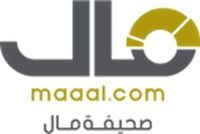The Kingdom of Saudi Arabia is undergoing a profound transformation in its economic landscape, moving beyond its traditional role as merely an oil exporter to becoming a hub for diverse investment opportunities. This shift, which has been building over recent years, is not just a fleeting trend but a fundamental change in how the economy is perceived and operated.
In the first quarter of 2025, the numbers began to tell the story of this transformation more clearly. Foreign direct investment (FDI) surged to approximately 17.3 billion Saudi riyals, following a strong performance in the fourth quarter of 2024, when the inflow peaked at 21.9 billion riyals, marking the highest quarterly figure of that year. Although the total FDI for 2024 is expected to close at 59 billion riyals, down from 106.3 billion in 2023, this does not indicate a downward trend but rather a repositioning of the investment landscape.
According to a report from Standard & Poor's, the Kingdom's credit rating was raised to +A with a stable outlook, while Moody's reaffirmed its A1 rating, citing the strength of Saudi Arabia's financial assets. This reflects a growing confidence in the Kingdom's markets, bolstered by a flexible monetary policy and institutional openness. The country is projecting investments totaling 2.79 trillion riyals, which further boosts investor confidence.
Saudi Arabia's economic evolution is marked by a strategic focus on three pillars: diversification, sustainability, and governance. Investment is no longer seen as an optional add-on but as a cornerstone of a national vision aimed at creating a resilient production model that leverages the Kingdom's resources while generating new opportunities.
In February 2025, the Kingdom launched its first trading fund for ESG (Environmental, Social, and Governance) opportunities in the financial market. This initiative underscores a commitment to redefining investment beyond mere profit, aligning with global trends towards sustainability.
Furthermore, the Saudi experience is not just a temporary phenomenon but a sustainable path that requires constant review and serious decisions that do not merely focus on short-term gains. The Kingdom's approach includes enhancing its measurement tools for foreign investment, developing a modern statistical system that reflects greater transparency and accuracy, thereby providing global investors with genuine indicators of market stability.
As the country continues to reshape its economic framework, it has also made significant strides in legal reforms. Specialized commercial courts have been established to serve investors better, alongside alternative dispute resolution mechanisms such as arbitration and mediation platforms. This legal overhaul aims to foster a more investor-friendly environment.
In contrast to some neighboring countries that are experiencing declines in investment due to political unrest or slow legislative updates, Saudi Arabia has chosen to emerge as a regional player with global standards. The Kingdom has unified various regulatory bodies and expedited the opening of new sectors to foreign ownership, reinforcing its position as an attractive destination for investment.
Experts suggest that the Kingdom could take a qualitative leap by linking investment incentives to qualitative localization rather than mere quantitative measures. This means that incentives would not be granted solely for the presence of investment but would focus on creating real value: sustainable jobs, knowledge transfer, contributions to local supply chains, or the introduction of advanced technologies that enhance Saudi Arabia's position in the global digital economy.
Moreover, the potential for independent economic zones with flexible powers is being explored. Projects like Neom and The Line could serve as advanced organizational models where new regulations and innovative investment practices are tested, free from traditional bureaucratic constraints.
On the local financing front, involving pension funds and family businesses in privatization and direct investment projects is crucial. These entities possess substantial capital and long-standing expertise but often lack guaranteed channels or sufficient incentives to engage robustly. Providing flexible financing tools, tax incentives, and clear partnership mechanisms could transform these bodies into sustainable financial and investment pillars.
In a world increasingly driven by data, digital currencies, and smart platforms, integrating the digital economy into investment policies has become essential. Empowering sectors such as artificial intelligence, data centers, cloud sovereignty, and blockchain will be among the fastest routes to bolster economic growth and achieve strategic superiority.
Finally, the vision cannot be complete without a global perspective that exports the Saudi experience. Proposals for establishing an international center in Riyadh to scout investment opportunities in emerging markets are on the table. This center would offer advisory services, market information, and open funding channels for developing countries seeking transferable growth models.
With these tools and solutions, it can be said that Saudi Arabia is not just redefining its economic equation but is also crafting a blueprint for those looking to turn their economies into development projects, making capital a partner not just in profits but in nation-building.


